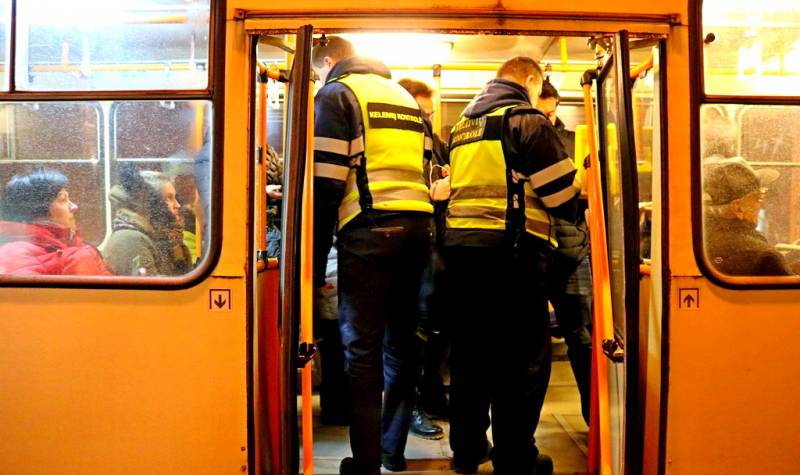Transport inspectors will receive police powers
The Ministry of Transport requires allowing controllers to check passports of passengers in public transport. The department sent the relevant proposals to the government. According to officials, the new norm will accelerate the process of issuing fines and will allow on-site to find out whether a person legally uses the benefits. But whether the innovation will help to more effectively influence the “hares” is a big question.
Stowaways in the regions are fought differently. In some, they are fined right in the cabin (and fines are different everywhere), in others they just drop them off a bus or tram.
In Moscow, they issue orders on an administrative offense and give two months for payment. If the passenger does not agree with the punishment, draw up a protocol. But in order to draw up these documents, you need personal data of a citizen. If he says that he does not have a passport with him, the situation becomes stalemate. You can’t take a word for it; the law does not allow you to show an identity card.
In such cases, controllers threaten to bring the controller to the police station. But this does not always work. They have no right to use force, and not everyone agrees to go to the police voluntarily. In such cases, controllers call a police patrol. But often, violators are simply released, since waiting for a patrol car and issuing a detention takes time. True, there is a third option - to conduct raids with the police, but they rarely happen: the guards have enough and other worries.
The proposals of the Ministry of Transport also contain a rule on the amount of the fine, which will be calculated according to the same rules in all regions: 20 times the fare.
Last year, Vladimir Putin spoke about expanding the powers of inspectors. And even instructed the Ministry of Transport and the Ministry of Internal Affairs to work out the issue. Transport workers were quicker than the police department. In the latter, as reported by Izvestia, they could not comment on the stage at which the execution of the order of the head of state is.
But the "initiative" of the Ministry of Transport is unlikely to improve the situation, experts say. Perhaps it will even cause conflicts between passengers and controllers on this basis. If the “hare” really has no documents with him or doesn’t want to show them, what can the supervisors with new powers do? Never mind. They will again have to turn to the police for help. If they decide to act by force, they themselves will receive a protocol, or even a criminal case.
Stowaways in the regions are fought differently. In some, they are fined right in the cabin (and fines are different everywhere), in others they just drop them off a bus or tram.
In Moscow, they issue orders on an administrative offense and give two months for payment. If the passenger does not agree with the punishment, draw up a protocol. But in order to draw up these documents, you need personal data of a citizen. If he says that he does not have a passport with him, the situation becomes stalemate. You can’t take a word for it; the law does not allow you to show an identity card.
In such cases, controllers threaten to bring the controller to the police station. But this does not always work. They have no right to use force, and not everyone agrees to go to the police voluntarily. In such cases, controllers call a police patrol. But often, violators are simply released, since waiting for a patrol car and issuing a detention takes time. True, there is a third option - to conduct raids with the police, but they rarely happen: the guards have enough and other worries.
The proposals of the Ministry of Transport also contain a rule on the amount of the fine, which will be calculated according to the same rules in all regions: 20 times the fare.
Last year, Vladimir Putin spoke about expanding the powers of inspectors. And even instructed the Ministry of Transport and the Ministry of Internal Affairs to work out the issue. Transport workers were quicker than the police department. In the latter, as reported by Izvestia, they could not comment on the stage at which the execution of the order of the head of state is.
But the "initiative" of the Ministry of Transport is unlikely to improve the situation, experts say. Perhaps it will even cause conflicts between passengers and controllers on this basis. If the “hare” really has no documents with him or doesn’t want to show them, what can the supervisors with new powers do? Never mind. They will again have to turn to the police for help. If they decide to act by force, they themselves will receive a protocol, or even a criminal case.

Information